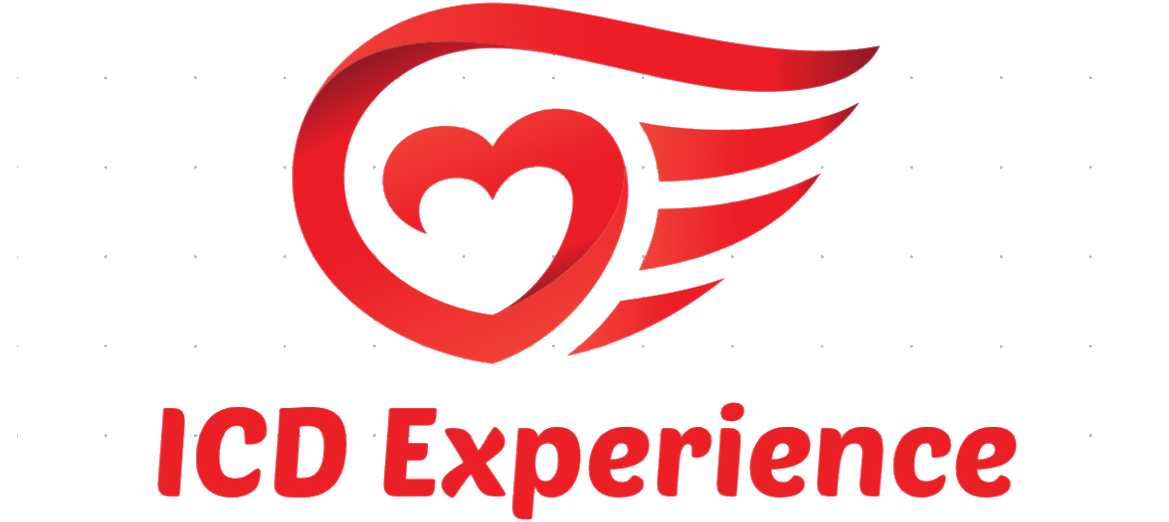Living with an implantable cardioverter defibrillator (ICD) can be life-saving for individuals with certain heart conditions. However, the process of getting an ICD and adjusting to life with it can be emotionally challenging. Among the various emotional hurdles, depression post-ICD implantation stands out as a significant concern. Dealing with depression post-ICD implantation requires a multifaceted approach that addresses both the emotional and physical aspects of the condition. This comprehensive guide aims to provide insights, practical strategies, and support for those navigating this difficult journey.
Emotional Impact of ICD Implantation
ICD implantation is a major medical procedure that can significantly impact a patient’s emotional well-being. The emotional impact can be attributed to several factors. First, there is the fear of device malfunction. The fear that the ICD might malfunction, deliver an inappropriate shock, or fail to work during a critical moment can lead to anxiety and depression post-ICD implantation.
Second, body image concerns play a role. The visible presence of an ICD under the skin can affect body image, leading to feelings of self-consciousness or embarrassment. Third, lifestyle adjustments are necessary. Adapting to the lifestyle changes necessitated by living with an ICD, such as avoiding certain activities or being cautious about physical exertion, can contribute to a sense of loss and depression post-ICD implantation. Lastly, there is chronic illness awareness. The presence of an ICD serves as a constant reminder of a chronic heart condition, which can be mentally and emotionally taxing.
Recognizing the Symptoms of Depression
Depression is more than just feeling sad or down. It is a serious medical condition that can affect every aspect of a person’s life. Recognizing the symptoms of depression post-ICD implantation is the first step towards seeking help and finding effective treatments.
Common symptoms include persistent sadness or emptiness, where there is a continuous feeling of sadness, hopelessness, or emptiness that doesn’t go away. There is also a loss of interest or pleasure, losing interest in activities once enjoyed, including hobbies, social interactions, and sexual activities. Changes in appetite or weight can occur, with significant weight loss or gain, or changes in appetite, often linked to emotional eating or lack of interest in food.
Sleep disturbances are common, with insomnia, waking up frequently during the night, or oversleeping. Fatigue and low energy are prevalent, making even small tasks feel overwhelming. Feelings of worthlessness or guilt can arise, with unwarranted feelings of guilt, worthlessness, or self-blame. Difficulty concentrating is another symptom, with trouble focusing, making decisions, or remembering things. Physical symptoms, such as unexplained physical problems like headaches or digestive issues, may also be present. Thoughts of death or suicide, including frequent thoughts about death, suicidal ideation, or suicide attempts, are serious and require immediate attention. For more information on recognizing depression, visit Mayo Clinic.
Practical Strategies for Managing Depression
Managing depression post-ICD implantation involves a combination of medical treatments, lifestyle changes, and support systems. Seeking professional help is crucial. Therapy and counseling can provide valuable support, with cognitive-behavioral therapy (CBT) being particularly effective in treating depression by helping patients reframe negative thoughts and develop healthier coping mechanisms. Learn more about the benefits of therapy.
Medication, such as antidepressants, can be an effective part of a treatment plan for depression. It is important to work closely with a healthcare provider to find the right medication and dosage. Regular check-ups with both a cardiologist and a mental health professional can help monitor both physical and emotional health. For more on the importance of regular check-ups, visit the American Heart Association.
Building a Support System
Leaning on family and friends for emotional support can make a significant difference. Sharing feelings and experiences with trusted individuals can alleviate feelings of isolation. Joining a support group for individuals with ICDs or heart conditions can provide a sense of community and understanding. Hearing from others who are facing similar challenges can be reassuring and empowering. Peer mentoring, connecting with someone who has successfully managed depression post-ICD implantation, can provide practical advice and hope. Consider joining online support groups.
Engaging in Physical Activity
Regular physical activity is known to improve mood and reduce symptoms of depression post-ICD implantation. Low-impact activities such as walking, swimming, or yoga can be particularly beneficial for individuals with heart conditions. It is important to consult with a healthcare provider before starting any new exercise regimen to ensure it is safe given your specific health condition. Learn about staying with our guide on safe exercises with an ICD.
Practicing Mindfulness and Relaxation Techniques
Practicing mindfulness and relaxation techniques can help reduce stress and improve emotional well-being. Mindfulness meditation, deep breathing, progressive muscle relaxation, and guided imagery can be effective. Yoga and Tai Chi combine physical movement with mindfulness and can help improve both physical and mental health. Journaling, writing down thoughts and feelings, can be a therapeutic way to process emotions and gain insight into patterns that contribute to depression post-ICD implantation. For more on mindfulness, explore Mindful.org.
Maintaining a Healthy Lifestyle
Maintaining a healthy lifestyle is crucial. Eating a balanced diet that includes a variety of nutrients can impact mood and energy levels. Foods rich in omega-3 fatty acids, such as fish, and those high in antioxidants, like fruits and vegetables, are particularly beneficial. Establishing a regular sleep schedule and creating a restful sleep environment can improve sleep quality, which is often disrupted by depression. Limiting alcohol intake and avoiding recreational drugs is important, as substance use can worsen depression post-ICD implantation and interfere with medications. Discover healthy eating tips on Healthline.
Fostering Positive Relationships with Healthcare Providers
Fostering positive relationships with healthcare providers is important. Open communication, being open and honest with healthcare providers about emotional struggles, includes discussing any side effects of medications or concerns about the ICD. Education, understanding the ICD, how it works, and what to expect can reduce fear and anxiety. Healthcare providers can offer resources and answer questions to help patients feel more in control. Collaborative care, working with a healthcare team that includes both cardiologists and mental health professionals, ensures a comprehensive approach to managing both physical and emotional health.
Long-Term Management and Coping Strategies
Long-term management of depression post-ICD implantation involves ongoing self-care, monitoring, and adjustment of strategies as needed. Setting realistic goals, setting small, achievable goals, can provide a sense of accomplishment and improve motivation. Celebrate progress, no matter how small, and be patient with yourself. Developing a routine, establishing a daily routine, can provide structure and a sense of normalcy. Include activities that promote physical health, mental well-being, and social connections.
Staying informed about new research, treatments, and strategies for managing both heart health and depression can empower patients and provide new avenues for improving quality of life. Cultivating hobbies and interests, engaging in hobbies and interests, can provide a sense of purpose and enjoyment. Whether it’s art, music, gardening, or any other activity, finding joy in small things can improve overall well-being. Volunteering or helping others, helping others, can provide a sense of fulfillment and distract from personal struggles. Volunteering or participating in community activities can also build social connections. Practicing self-compassion is essential. Acknowledge that dealing with depression post-ICD implantation is challenging, and it’s okay to have difficult days. Treat yourself with the same kindness and understanding you would offer a friend.
The Role of Technology and Future Trends
Advances in technology and ongoing research continue to improve the management of depression and heart conditions. Telehealth, access to mental health services through telehealth, can make it easier for patients to receive support without leaving their homes. Wearable devices, wearable technology that monitors heart health and provides real-time data, can help patients feel more in control and alert them to potential issues early. Advances in artificial intelligence and personalized medicine hold promise for more tailored and effective treatments for both heart conditions and depression. Learn about telehealth advancements.
In summary, dealing with depression post-ICD implantation requires a comprehensive approach that includes seeking professional help, building a support system, engaging in physical activity, practicing mindfulness and relaxation techniques, maintaining a healthy lifestyle, fostering positive relationships with healthcare providers, and employing long-term management and coping strategies. Advances in technology and ongoing research continue to offer new possibilities for improving the quality of life for individuals living with an ICD. Through these combined efforts, it is possible to manage depression post-ICD implantation and lead a fulfilling life despite the challenges posed by an ICD and the underlying heart condition. For additional support and resources, visit our ICD guide on our website.
For more in-depth insights, check out my book “Understanding ICD Implants: A Comprehensive Guide.”












